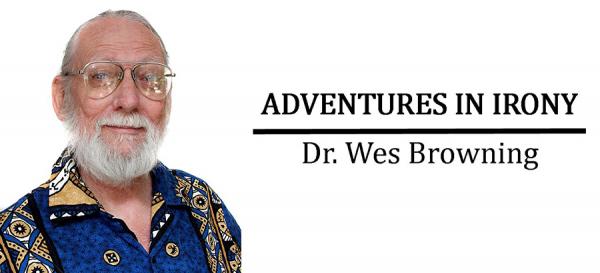DeepL, the AI-fuelled language translation company based in Germany, is keen to strengthen its presence in the Middle East and is making efforts at improving its Arabic translation services while courting potential clients in the region, its chief executive has said.
The company's AI neural translation technology has set the pace for much of the language-translation sector in recent years, chief executive Jaroslaw “Jarek” Kutylowski, 41, told The National in an interview in Dubai.
The technology translation unicorn's efforts to increase its presence in the region come amid a global race from various companies like Google, Microsoft and Grammarly, who are vying for a slice of the lucrative language translation sector.
Mr Kutylowski said DeepL offers plenty of VC funding and hundreds of millions of users and is trying to stay ahead of the competition.
Its translation offering for business customers, DeepL Pro, is used by more than 20,000 businesses, according to DeepL.
“We are starting to talk to customers to see what their requirements are. We are looking in the UAE and we’ll see what develops in the future,” he said.
Mr Kutylowski said he’s speaking with various companies in the UAE, particularly in the real estate sector to better see how DeepL could potentially assist with their international clients.

He’s also seeking to better understand the nuances of Arabic in the business world.
“One of the reasons I’m here [in Dubai], I’m intrigued by the language and I’m keen to learn more by my time spent here,” he said.
DeepL, headquartered in Cologne, currently has offices in London, Amsterdam, Berlin, Tokyo and the US, and while it doesn’t have immediate plans to open offices in the UAE, that could change.
“It depends on the success of the market and how the reception from the customers are and how much on the ground support our potential customers might need over here,” he said.
The company, founded in 2017, reached a $1 billion valuation last year and also launched its Arabic language translation capabilities in January of 2024.
Despite advancements in machine learning, because of its complexity and diversity in terms of dialects, Arabic has proven challenging for various online-based translation services.
Mr Kutylowski said Arabic was the first language translation implementation launched by DeepL that is written and read from right to left.

“The grammar is a bit different and a few things in the AI translation training need to be done in a slightly different way,” he said.
“The beauty of AI is that you don't have to teach it the grammar rules, it's able to pick it up already, but there are some preparation steps that require additional work to get it done,” he said, noting that Japanese also required more time to perfect.
Mr Kutylowski said introducing Arabic translations is also a matter of prioritisation and staffing, something he said DeepL has tried to put front and centre.
“It's work,” he said. “It's not so complicated when you look at it from an engineering perspective, but it just needs to get done.”
He said DeepL is fast approaching having about 1,000 employees.
“60 per cent of that is research and development because this is a complicated topic [translation] and we also have this large platform to engineer, we’re among the top 100 domains in the world in terms of traffic, and you want to keep that stable and running,” he said.
“There’s also the research that goes into the neural networks,” he said, noting that the DeepL has about 50 people working on the mathematical and technical aspects of such networks.
Mr Kutylowski also said the company employs editors and others providing input for the 32 languages supported by DeepL.
According to its website, the company has 100,000 business customers currently using DeepL to communicate both with customers and internally.
Japanese news agency, Nikkei, is among those mentioned by Mr Kutylowski as a DeepL client.
“They’re publishing some of their articles written in Japanese and translating them to English and Chinese,” he said.
DeepL’s translations are made possible through artificial neural networks, a vital component that makes artificial intelligence possible. In short, these networks, used by most modern translation apps and services, train in ways that are similar to the human brain.
According to Mr Kutylowski, DeepL was among the first to use this approach, and while other translation services have also used neural machine translation in recent years, DeepL has improved its approach through an increased focus on training data and methodology.
“When you’re able to design the best neural network architecture, when you’re able to train those networks properly and find the best training data, then you can achieve the best quality and that’s what we’ve been doing for six years,” he said.
Along with its free and basic translation offering, DeepL provides various iterations of its translation services, apps, services and APIs through tiered pricing.
The company also recently launched what it describes as an AI-powered writing companion called DeepL Write, which will go toe-to-toe with Grammarly, a similar product widely considered to be a dominant player in the writing assistance space.
Mr Kutylowski said most of DeepL’s clients are using desktop and laptop PCs and DeepL’s browser extensions, although a mobile app is available.
“In business and enterprise, this is still what it is,” he said, talking about users preferring to use DeepL’s services on PCs rather than mobile devices.
“If you’re working with sophisticated applications … most of what you’re doing during the day is at the desktop.”
Although he declined to give specifics over revenue, Mr Kutylowski described DeepL's business model and financial outlook as “good”, and said that the company's web traffic routinely puts it among the 100 biggest web domains in the world.
DeepL is certainly not alone in terms of offering online translation services, with competitors such as Google Translate or Microsoft Bing's translator service, which also have an Arabic translation offering, although not the personalised client model offered by DeepL.
Google and Microsoft also have the deep pockets to improve their searches over time, along with installed user bases that could potentially be a significant advantage.
The translation market also shows no sign of slowing down. According to Straits Research, it could reach a market size of $48 billion by 2031.
DeepL has continued to attract investors and clients, while also expanding its language portfolio.
“We're really good at focusing at what we're doing,” Mr Kutylowski said, referring to DeepL's research into neural networks as well as its emphasis on staffing language and engineering experts.
Jarek also made sure to point out that DeepL is his first company, and he doesn't have any plans to go anywhere else anytime soon.
“Keeping track of all this growth is challenging enough, so I'm not getting sidetracked,” he said.
Updated: May 09, 2024, 12:54 PM




